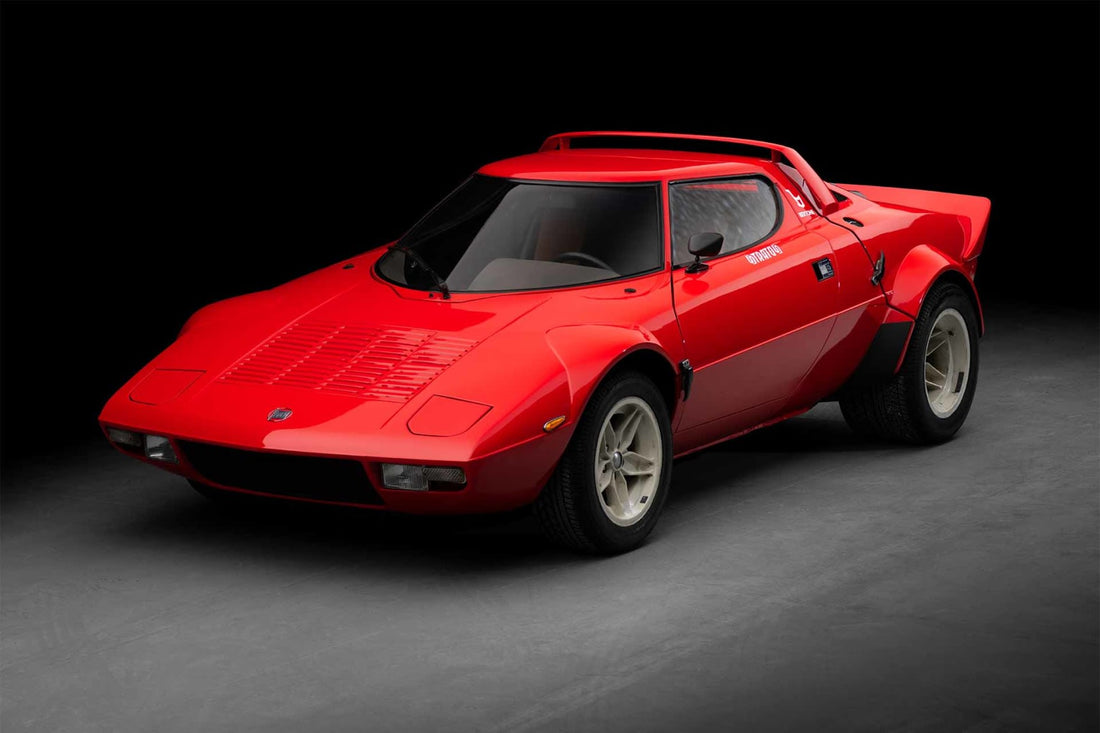
Lancia: The Italian Elegance on Four Wheels
Lancia: The Italian Elegance on Four Wheels
Ah, Lancia—a name that once evoked images of high-speed rallies, impeccable Italian design, and an almost stubborn refusal to be ordinary. Founded in 1906 by Vincenzo Lancia, the company set out with one mission: to build cars that were different. Not different in the way your neighbor’s weird cousin is different, but different in a refined, "I have a degree in engineering, but also play the violin" kind of way.
Vincenzo, a former Fiat racing driver, had a vision to create automobiles that blended performance, innovation, and style—a philosophy that Lancia would carry like a designer handbag through most of its history. Their cars weren’t just tools for getting from A to B; they were declarations of engineering prowess and automotive artistry. And if they happened to win a few rallies along the way, well, that was just a bonus.
From Alfa to Flaminia: The Early Years
Lancia’s first model, the Tipo 51, also known as the 12 HP Alfa (long before Alfa Romeo raised their eyebrow at that), hit the roads in 1907. It was less about raw power and more about elegance and innovation. By 1922, Lancia was already making waves with the Lambda—a car that had more technological firsts than a smartphone launch. It was the first production car to feature a unibody chassis and independent front suspension, making it not just ahead of its time, but probably ahead of some modern cars as well.
The pre-war years saw the introduction of the Augusta, Aprilia, and Artena—cars that were as sophisticated as their names suggest. These were not the cars you drove to the grocery store; these were the cars you parked outside an Italian café, while sipping espresso and pretending to read a very intellectual newspaper.

Post-War Rebirth and the Flavia: Lancia’s Golden Era
After the war, Lancia didn’t just dust itself off; it reimagined what a car could be. Enter the Aurelia in 1950, a car so stylish that even Hollywood wanted a piece. And then came the Flaminia in 1957, which was less a car and more an invitation to a lifestyle of driving gloves and well-fitted blazers.
By the 1960s, Lancia was on a roll. The Fulvia, introduced in 1963, didn’t just win hearts; it won rallies. The Fulvia HF won the International Championship for Manufacturers in 1972, putting Lancia on the map as a serious contender in motorsports. This wasn’t just a car; it was a statement—an Italian nonchalance meeting a fierce competitive spirit.

The Rally Giants: Stratos, 037, and Delta
Now, let’s talk about the Lancia Stratos. If there ever was a car that screamed “I’m faster than you,” it was this one. Born in the 1970s, the Stratos was the ultimate rally weapon—a wedge-shaped rocket that made you want to put on a helmet just by looking at it. It dominated the World Rally Championship (WRC) in the mid-70s and set the stage for Lancia’s rally dynasty.
Then came the Lancia 037 in the early 80s, because why stop at one legend when you can have another? The 037 was the last rear-wheel-drive car to win the WRC, and it did so with a flair that made everyone else’s car look like a school project. And just when the competition thought it was safe, Lancia unleashed the Delta Integrale—a car so dominant in rallying that it won the WRC a staggering six times in a row from 1987 to 1992.
The Decline: Too Stylish to Function?
But as the 90s rolled in, so did the troubles. Fiat took over, and Lancia’s distinctiveness started to fade. Models like the Dedra and Kappa were fine, but they lacked that Lancia magic. It was like watching a rock star play in a cover band—it’s still good, but you can’t help but feel something’s missing.
By the 2000s, Lancia had become a shadow of its former self. The Ypsilon and Musa were more about Italian quirkiness than groundbreaking innovation. And let’s not even talk about the rebadged Chryslers, which felt like dressing a panda in a tuxedo and calling it James Bond.

👉 Shop the Alfa Romeo Bedding Collection
The Numbers Game: How Many Lancias Roamed the Streets?
Over the years, Lancia produced more than 9 million cars. The Fulvia alone saw over 140,000 units roll off the assembly line, while the Delta Integrale became an icon with over 44,000 produced. The Stratos was more exclusive, with fewer than 500 built, making it the automotive equivalent of a rare Italian wine—highly sought after and occasionally found in a very lucky collector’s garage.
Why Lancia Still Matters
Sure, today Lancia is down to one model, the Ypsilon, sold only in Italy. But that doesn’t mean the brand has lost its allure. The Lancia name still stands for something—innovation, elegance, and a bit of that Italian flair that says, "Yes, I’m stylish, but I also know how to have fun." It’s the brand that gave us some of the greatest rally cars ever and some of the most beautifully engineered sedans the world has seen.
So next time you see a Lancia (which admittedly might be a while), give it a nod of respect. It’s not just a car; it’s a piece of automotive history, a reminder of when cars were more than just machines—they were dreams on wheels.
Let’s Hear It
Which Lancia model revs your engine the most? Was it the rally-bred Delta or the elegant Flavia? Share your thoughts in the comments below and let’s celebrate a brand that may have left the limelight but never truly left our hearts.
